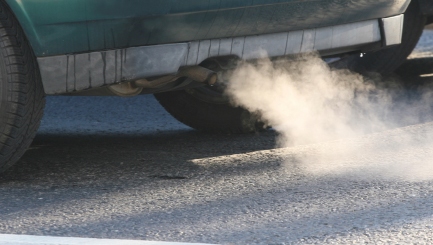Could Traffic Fumes Affect Your Baby’s Birth Weight?
 When you’re pregnant, you do everything you can to ensure that your baby comes out as healthy as possible, but a study has found that your baby’s wellness at birth may not be as in your control as you’d hoped. According to the findings from the largest study to date, if you’re pregnant and live in an area with significant air pollution, you’re more at risk of having babies with a low birth weight.
When you’re pregnant, you do everything you can to ensure that your baby comes out as healthy as possible, but a study has found that your baby’s wellness at birth may not be as in your control as you’d hoped. According to the findings from the largest study to date, if you’re pregnant and live in an area with significant air pollution, you’re more at risk of having babies with a low birth weight.
According to the study’s researchers, who looked at more than three million births in nine nations, the individual; effect on infant wellbeing was small and you should not be alarmed. However, the study, published in Environmental Health Perspectives, did find that, on populations as a whole, the impact was considerable.
But why is this a cause for concern at all? When a baby has a low weight at birth, he or she is more likely to have health problems, and is at a greater risk of death. Though, thankfully, the majority survive, these babies are still more likely to develop conditions such as diabetes and heart disease in adult life.
The study from the International Collaboration on Air Pollution and Pregnancy Outcomes (ICAPPO) was led by Prof Tracey Woodruff and colleagues at the University California, San Francisco, who looked only at airborne particulate matter that is small enough to penetrate the human respiratory tract. The results indicate that the link between birth weight and pollution correlates according to the dose, meaning that the higher the exposure, the lower the average birth weight.
Woodruff noted, ‘What’s significant is that these are air pollution levels to which practically everyone in the world is commonly exposed.’ Prof Kevin McConway, a statistician at the Open University added that if Newcastle, for example, cut its current particulate air pollution level by half, two or three fewer low weight babies would be born out of the total of 3500 in the city each year. He commented, ‘That sort of reduction might well be worth having, but it’s not something that pregnant mothers should lose sleep over, I’d say.’
According to the Department of Environment, Food and Rural Affairs, the air quality in the UK is ‘generally good.’ However, they asserted that ‘more needs to be done, especially in the cities, to reduce the harmful effects of air pollution.’ Dr Tony Fletcher, senior lecturer in Environmental Epidemiology at the London School of Hygiene and Tropical Medicine, added, ‘While the average effect on each baby is small and so should not alarm individual prospective parents, for the whole population these small risks add up across millions of people.’


Comments are closed.